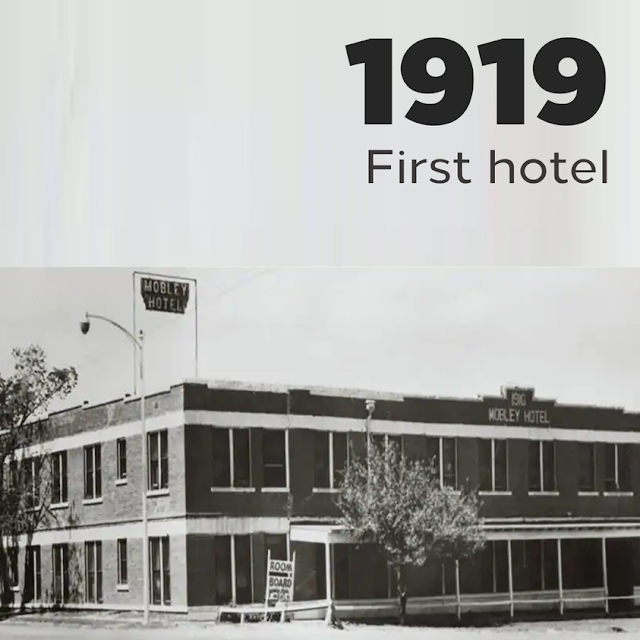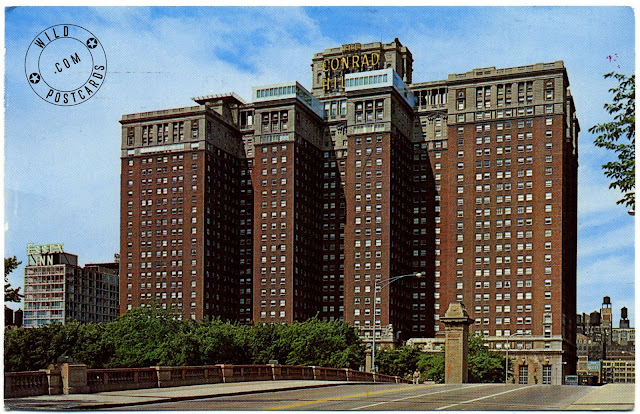''Success is linked to action. Successful people are in control of almost every single situation. They can make mistakes, but they do not give up," Conrad Hilton wrote in 1957 in his autobiography, Be My Guest. He himself did not give up in hard times and managed with the right business moves to create an empire that prospered until our days.
Conrad Hilton was born on Christmas Eve 1887 in a small town in New Mexico. His father, a successful Norwegian immigrant who owned the city's only department store, built a large house for his American-German wife and their eight children.
,_Bestanddeelnr_914-1160.jpg) |
In his youth he studied at a military school, while later he attended courses at a college specializing in mining and technology. After finishing his studies he returned and worked in his father's shop, where he soon became a partner.
In 1907, the eight-room house was converted into the first informal Hilton Hotel, in order for the family to cope with the economic downturn. As things went awry, Hilton suggested renting some of the rooms for $1 a night, including meals. He used to go every day to the train station to find customers, mostly salesmen. This effort worked out and soon got the family out of the tough situation it had been in.
In the following years he worked in the store but also as a bank cashier, until 1918, when he went to France during the First World War. However, he returned when he learned that his father had been killed in a car accident, the first fatal car accident in the history of the state of New Mexico.
That same year he moved to Texas where he tried to acquire a bank. Although the deal was not finalized, Hilton noticed that the few hotels in the area were all in full capacity. As he waited in line to check in, he interacted with the hotel owner, who complained that the demand for his rooms was so high that he couldn't make it and was anxiously looking for a buyer.
Hilton, apparently recalling his first successful attempt a decade ago, seized the opportunity and acquired - with his father's inheritance and the financial help of friends - the hotel.
Related: History of Boutique Hotels
Indeed, the demand for rooms was so great, especially from workers in the oil industry, that many rooms were filled, up to three times a day, to the point where Hilton rented his own room (he slept in his office chair every night). At the same time he transformed all free spaces, such as dining areas, into rooms (one of which now functions as a museum, while the boulevard in front was renamed Conrad Hilton). However his first hotel, called the Mobley Hotel, was not, according to what he wrote in his autobiography, "anything more than a suitable place to sleep."
In 1925 he built in Dallas the first hotel to bear his name and a few years later in Chicago the Conrad Hilton, which had 1,000 rooms, being the biggest of the time. In 1931 he flirted with bankruptcy as the international recession restricted travel, but was rescued by a group of investors. Eventually, he regained full control of his hotels and in 1946 founded the Hilton Hotel Corporation. Two years later, in 1948, he founded the Hilton International Company, being the world's first international hotel chain.
In the following years he acquired luxury hotels, such as the famous Waldorf Astoria and Statler Hotel, as well as a casino, built the first airport hotel in 1963, and collaborated with car rental and credit card companies. In such a short time he managed to become one of the most successful and prosperous businessmen (with intense political and philanthropic activity), while his name appears next to other American legends, such as Ford and Rockefeller.Insightful and innovative as he was, he offered his guests unprecedented amenities and services, proving that he was far ahead of its time: running cold water and air-condition in public areas (1927), TV in the rooms (1947), advanced reservations system (1948), sewing kit along with a booklet with useful addresses and telephone numbers (1950), direct telephone calls (1957), as well as a regular customer reward program (1987).
In 1966 his son Baron (one of the four children he had from three wives - one of whom was Za Za Gaipor, a well-known actress and beauty queen) took over the company, while his father ran the business outside America, known as Hilton International.
Conrad Hilton, the owner of 188 hotels in 100 cities around the world (today the chain counts 5,700 hotels in 117 countries - the company used to open a new hotel every day), died in 1979 at the age of 91. He left most of his fortune, causing the dissatisfaction of his children, to the Ferron Foundation and Conrad Hilton University, which specializes in tourism studies. However, his children challenged the will and went to court. As a result in 1988 $335 million passed into their hands.
John Protopapadakis is a marketing and customer service expert. He is a professor, an author (has written 20 business books so far) and a seminar instructor.




